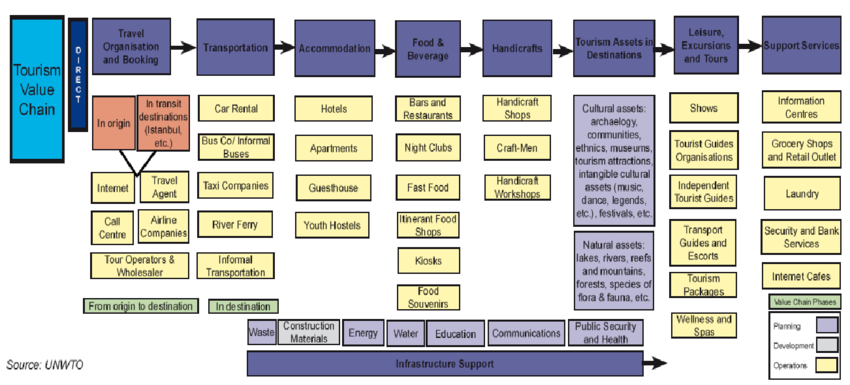By Hanni Tran
Abstract
Tourism is a human aspect. It brings people touching together in all dimensions. However, data on tourism based on education and employment is still fragmented, lacks of quality to enter international market.
The situation is not only for the case of international level, but also at the national level where can be found different methods producing different figures and effectiveness in the industry.
The navigator of tourism labor workforce assessment is enhancing of quality and comparability of tourism data through monitoring labour markets. Qualified employee is principle factor in ensuring sustainable tourism development and its contribution to economic growth and employment.
17 SDGs in Tourism
Recently, the 17 Sustainable Development Goals by United Nations period 2016-2030 (17SDGs) addresses that Goal 4 – quality education for tourism – aims to ensure that all people have access to quality education and lifelong learning opportunities.
This Goal focuses on the acquisition of foundation and higher-order skills at all stages of education and development; greater and more equitable access to quality education at all levels, as well as technical and vocational education and training (TVET); and the knowledge, skills and values needed to function well and contribute to society.” (UN, 2016).
Accordingly, 17SDGs is a tourism barometer to full fil the gap between education and employment market, all tourism stakeholder compliance value of every tourism products by giving comparative services with skilled and professional commitments to customers and the market globally.
2019, the Year of Education, Skills development and Jobs.
The report from UNWTO in 2018 said that the International tourist arrivals reach 1.4 billion two year ahead of forecasts. Certainly, Middle East (+10%) and Africa (+7%) grew above the world average while Asia and the Pacific and Europe grew at 6%. For 2019, UNWTO forecasts 3-4% increase, in line with the historical growth trend. That is why for this year 2019 is named the Year of Education, Skills development and Jobs.
These issues will be discussed more about:
- Factors control and practice the whole education process related sustainable tourism development.
- Criteria and standards to make tourism human resource comparative in global context.
- Globalized measurement frameworks of tourism employment via education quality.
- Some practices from other countries on filling the gap between education and employment.
-
Factors control and practice the whole education process related sustainable tourism development
From the point of view of market economy, factors leading tourism development are employment, environment, social impacts that make the whole education role inclusive. These are from all about human being activities in their lives.
Therefore, education in tourism is addressed not only tourism skills but basic skills at all other industries. The tourism educational achievement-end makes human satisfied with their basic needs of the journey.
The world of work in tourism is spread to other industries. For example, sectors are related in a destination features such as technology, health, education, agriculture, …that bring tourism a various huge jobs to be educated.
Accordingly, tourism educational industry takes a role to train, coach or consult and improve people tourism mindset, tourism behaviors and activities routinely. These make a huge labour work force to serve in tourism sector. Tourism for all means education for all too.
Human source of tourism industry is developed by tourism trend and needs. Thus, education sector has to reach to the tourism market needs. On the other hand, education is a main factor to lead tourism labour market if educators want to be a high-end class to lead tourism.
Uncountable jobs created by tourism value chain
The below chart of tourism value chain expresses various uncountable jobs in tourism. That is the source for education industry to produce formula tourism training program and meet ongoing demands.
(Cont.)


